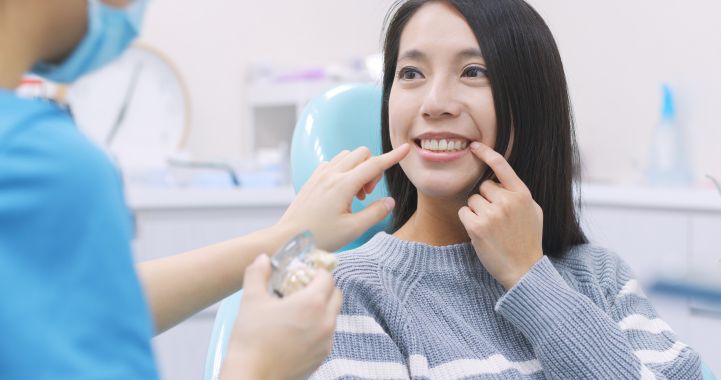
According to a 2022 article by the United States Military Health System, an estimated 30 percent of American adults grind their teeth. Known as bruxism, this dangerous condition often occurs unconsciously, making it that much harder to stop. If left untreated, it can cause excessive tooth wear and breakage, as well as receding gums which could leave your mouth vulnerable to gum disease. Worse yet, as bad as it is for your natural smile, it can be extremely harmful to your dental implants, too. Here’s a closer look at why if you suffer from bruxism, it’s important to treat it if you want to restore your smile with these life-changing prosthetics.
The Truth About Dental Implants
Dental implants have quickly become the most popular way to replace missing teeth. Not only are they permanent, but they also provide full biteforce, so you can use them to enjoy a full diet. They’re also easier to care for and more durable than other options like dentures and dental bridges. But while they do boast an impressive 95 percent success rate even ten years after placement, they aren’t completely indestructible. In fact, one of the most common reasons they fail is bruxism.
Dental Implants and Bruxism
While getting dental implants with bruxism isn’t a dealbreaker, there are a few important things you should do if you grind your teeth.
First, your dentist may recommend you undergo what is known as a bone graft procedure. This is designed to strengthen and rebuild your jawbone, which may have become worn down due to lack of stimulation from missing teeth, or by pressure from bruxism. By restoring the density, your jaw will become stronger and more capable of withstanding the pressure of bruxism once your dental implants are in place.
Another recommendation may be to get what is known as a bite guard. These are custom made orthotics that are typically worn while you sleep to minimize the impact of teeth grinding. They work by absorbing the pressure of your teeth, so that it does not transfer and cause tooth damage or dental implant failure. Because these devices are crafted using impressions from your teeth, they will fit your mouth perfectly with no uncomfortable excess or bulky material, and they can greatly improve your chances of dental implant success when worn as directed.
Remember, while grinding your teeth can be extremely dangerous to your teeth and dental implants, treatments from your dentist such as bone grafting and custom bite guards can help protect you from the dangerous effects of bruxism. To learn more about your options, schedule a consultation with your dentist today.
About Dr. Bragg
Dr. Jennifer Sherwood Bragg earned her bachelor’s degree at Mercer University and her dental degree at Medical College of Georgia in 1997. Since then, she’s been proudly protecting and restoring beautiful smiles. If you’re missing one or more teeth and are interested in learning more about dental implants, don’t let a bruxism diagnosis hold you back. Schedule a consultation with Bragg Dental on our website or call us at 770-889-8420 today to learn more about how we can help you get back your gorgeous grin, even if you grind your teeth.
